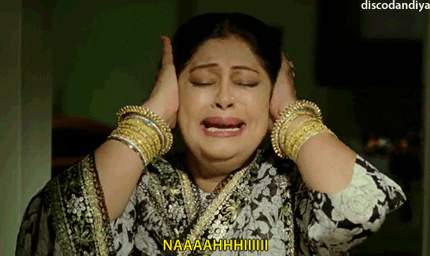Hello ji,
The Johars and the Chopras, the Kapoors, and the Khans will have you believe that finding love is all blooming roses and string quartets.
We often take those roses and violins as the perfect recipe for a happily ever after.
But is that all it takes to make a good marriage, a solid partnership that will withstand the test of time?
Ladies,
He might go down on bended knee to ask you to marry him, but will his knee bend to mop the floor when the domestic help is on leave?
He makes your heart go aflutter when he walks into the room, but will he take the kids out for a walk so that you can catch a mental health break at the end of a crazy day?
Your parents love his big paycheck, but will he spend it all on the latest sports car or invest in mutual funds for your family’s future?
Welcome back to the Womaning in India podcast!
This episode is part of a series I am going to call “How to find your husband?”
No, this is not the podcast your mom wants you to hear so that you will finally see the photos of the nice boys she has shortlisted for you!
But if you do think that marriage is something you want from life, you should listen to this anyway – because here, we will talk here about the important questions to ask prospective partners that Bollywood romances forgot to teach us about.
In the first episode of this series, I talked with Sameera Maruvada. Sameera is an artist and entrepreneur currently based in the quiet town of Vishakhapatnam.
How to Find a Husband: Ep 1
If you wish to dive right in, here is the episode, but I will also repost the link at the bottom of the post if you want to read it first:
In this episode, we talk about:
How being married is considered a badge of honour, a victory… even a prerequisite for a woman to be a complete person. And by corollary, how single women’s achievements are diminished and devalued because the ‘failure’ of not being a wife seems to overshadow every professional accomplishment of a woman.
How educational aspirations of girls and young women are curtailed and they are expected to limit their ambition so that they do not ‘over qualify’ themselves out of potential marital prospects.
Both men and women might imagine that damsels in distress make great wives. But damsels in distress are not real. They are created through a process of social conditioning where women are taught to depend on men for the most basic things, like stepping out of their homes or handling money.
And finally, my favourite bit…
The List.
What women could look for in a potential partner, i.e., how to find a husband. Or, at least, how to avoid landing a bad one.
Here is Sameera’s “list”:
1. Has he lived alone?
Sameera says that living alone teaches you a lot of life skills that are very hard to learn when one lives with their parents (especially their mother who takes care of the little unseen things that go into keeping a house running).
2. Why does he want to get married?
The answer to this question can tell you a lot about a man. Sameera has personally been propositioned for reasons ranging from “my family wants me to get married”, to “you and I are the same caste” to, most hilariously, “I want to start a business and need a business partner”!
3. What is his financial situation and priorities?
It is important to have clarity about the financial assets and liabilities you will inherit through the marriage. Compatibility of financial goals is as important as physical, mental, and emotional compatibility with a prospective life partner. Having this conversation is also a great way to filter out a man who might financially abuse his wife in the future by keeping her out of life-changing financial decisions of the family.
4. Who will pay for the wedding?
Sameera says in the episode that the fact that the woman’s family is often expected to sponsor the entire wedding is a regressive practice that ultimately promotes the preference people have for a male child. Ask your potential partner what he thinks about sharing the wedding bill equally. His answer might tell you a lot about him as a person.
Also, clarify whether a dowry is expected. Sameera reminds us that there is often an expectation of expensive ‘gifts’ to be given to certain members of the groom’s family at weddings, which serve as a sort of “hidden dowry”, even in families that say they are modern and progressive.
5. Does he “believe in the existence of patriarchy”?
I found this question really funny (Is patriarchy a fictitious entity like Batman? Does he believe in Batman?) Turns out, Sameera has actually met people who think that patriarchy is a figment of our imagination! She says that lack of awareness is one thing but a man who blatantly denies the millennia of gender-based atrocities and gender roles embedded in our families to this day is a no-no for her.
6. Speaking of gender roles, how does the man expect household responsibilities to be divided after marriage?
Many men expect the woman to handle the household, raise the children, and take care of ailing family members and other dependents – all of which is invisible labour that women have to often shoulder over and above their day jobs. Even if a man says he believes in an equal partnership at home, it is important to dig deeper into this assertion with examples – does this include mental load? Is he going to expect to be reminded of every little thing? Does he plead “I don’t know how to do this” when faced with the mammoth challenge of changing a bedsheet?
A good point to start is to observe the respect (or disrespect) with which he talks about household responsibilities. Does he see all the work that goes into keeping a house running? And does he show an appreciation for how much effort it is? Is he willing to take complete ownership of at least some household chores so that there is a semblance of equity in the relationship?
7. What are the expectations from the in-laws?
Wearing the clothes you want to.
Getting your haircut the way you want to.
Stepping out of home without a chaperone.
The smallest of freedoms are hard-won for women, often in the homes of their own parents. Will you be expected to fight all the basic battles all over again after marriage? Will you be made the upholder of all family traditions and will your clothes, your behaviour, your demaenour, and your choices be restricted in the name of family honour?
8. Observe the gender roles followed at your prospective in-laws’ place.
Who lays the table?
Who clears the table?
Who manages the staff, if any?
Who eats the freshest food and who finishes yesterday’s leftovers?
A simple meal at your would-be’s home can tell you a lot. Observe how roles are split between your prospective in-laws closely because that is a pretty solid predictor of the roles you will be expected to play in the marriage.
9. What are the practices around menstruation followed in the family?
Are menstruating women allowed to enter the kitchen?
Are they allowed to ‘touch the pickle’?
Are they expected to take head baths in the middle of the night to ward off ‘impurities’?
Sameera has seen all of these, and worse, period practices followed in families. She says that any indication of such a practice is sure to send her running in the opposite direction. Another important question we often neglect to ask, but is vitally important.
10. Expectations in terms of looks and beauty standards.
With all the insane standards imposed on women by the beauty industry today, it is nearly impossible for a woman to be happy with her body. Even the world’s most celebrated beautiful women have spoken about having body image issues. In such times, it is more important than ever before to have a partner who will see you and your body with the love and kindness you deserve.
Show Notes
You can follow Sameera’s brilliant art on her Instagram page.
Womaning in India posts referenced in the episode:
Desperately Seeking Shah Rukh: India's Lonely Young Women and the Search for Intimacy and Independence by Shrayana Bhattacharya
Made in Heaven on Amazon Prime Video
The cartoon “You should’ve asked” by Emma
What are YOUR criteria for finding (or filtering) a husband for yourself or your loved ones?
The Return of the Podcast
And here is the episode again:
You can also hear it on your favourite podcasting platform: Spotify, Apple Podcasts, Google Podcasts, Stitcher, Castbox, Pocket Casts, Castro, Podcast Addict, Podbean, Podhero.
Happy listening!
Mahima
❤️ Love Womaning? Show it by becoming a paid subscriber or getting yourself some choice Womaning merch.
🔥 If you are an aspiring writer - or even someone who just wants to make their emails shine - check out my storytelling course, which includes writing workshops and one-on-one mentoring to help you write better, write consistently, and launch your own newsletter.









Wonderful article! Loved it. Some more questions that should be asked at the cute-meet aka the first meet up with the prospective candidate.
1. What do you think about taking care of parents? Does he think the have responsibility to take care of only his parents or will he be accepting of the responsibility of taking care of her parents as well in their old age. (I say this because as we get into our sixties, I see how couples are stepping forward to take care of both sets of parents with old age challenges of health, safety, indepence etc).
2. What is your opinion of the woman sharing some of her salary income with her parents ? Sons supporting their parents is deemed acceptable but daughters supporting their parents is considered an exceptional situation.
What a great conversation! Sameera is so articulate and insightful.
Also, I'm here for a director's cut of the squirrel joining the two of you in conversation.